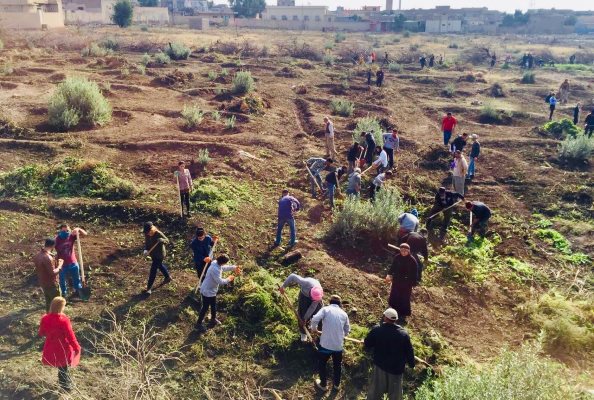Today on World Food Day, the Food and Agriculture Organization of the United Nations (FAO) and the United Nations World Food Programme (WFP) renewed their commitment to supporting the government of Iraq in ensuring that all Iraqis have food security by 2030, with a focus on nutritious food and sustainable livelihoods.
“World Food Day is when we confirm and work to achieve our commitment towards Zero Hunger. In Iraq, FAO will be further cooperating with WFP to provide capacity development and rural income generation programmes for farmers.
FAO is supporting the rehabilitation of water infrastructure, value chains development, the fishery sector and introducing smart agriculture practices in response to country priorities and climate change impact,” said FAO Representative in Iraq Dr. Salah El Hajj Hassan.
The 2019 Memorandum of Understanding between FAO and WFP fosters closer collaboration on longer-term initiatives. Activities will include restoring irrigation canals, instituting sustainable practices such as planting productive trees, and providing inputs such as seeds and tools.
Through such programmes, vulnerable people will receive an income, can get back to work following displacement due to conflict, and continue to farm and grow their own food.
As well as enhanced nutrition awareness for Iraqi citizens, in the coming year, climate change adaptation will be a priority so that communities are better able to recover from climate-related shocks. FAO and WFP are striving to build social cohesion through collective livelihoods rehabilitation. WFP recently reopened its office in Basra to help coordinate activities next year in the south, where vulnerability and poverty indicators are worst.
“In this rehabilitation phase, FAO and WFP are working on livelihoods projects to bring communities together, and contribute to improving long-term self-sufficiency,” said Abdirahman Meygag, WFP Iraq Representative. “We see our climate change adaptation activities as being crucial for food security and the country’s recovery.”
FAO and WFP will also share expertise on information management and assessments, for evidence-based programming that targets the most vulnerable. Programmes are designed together with the government, for and with communities. The two agencies will also coordinate with partners on livelihoods activities, to maximise income-generating opportunities for those in most need.
(Source: UN)

